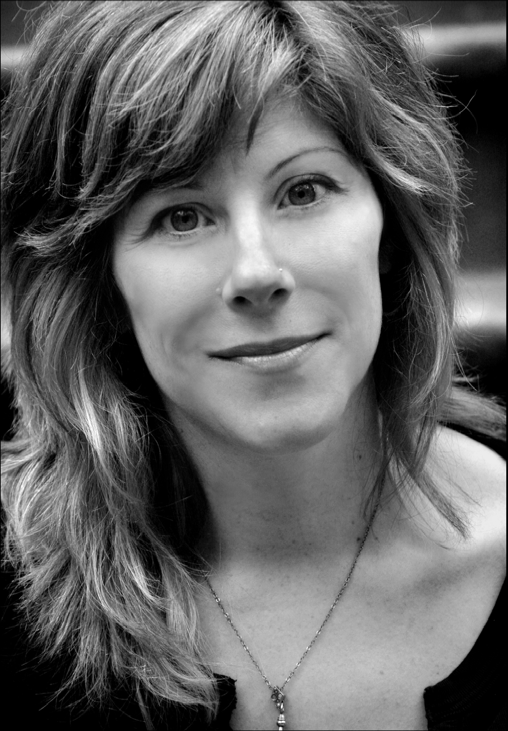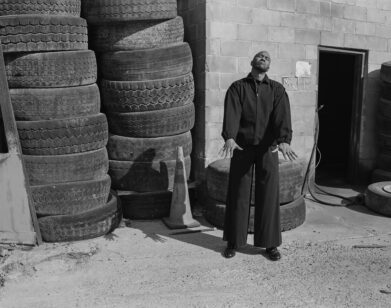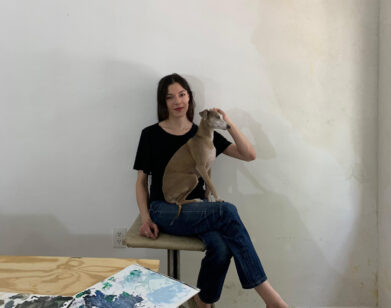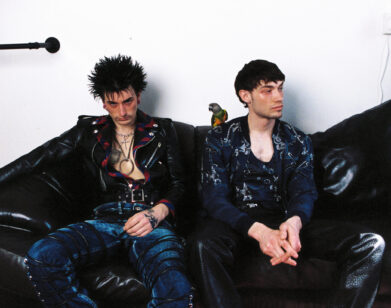Elissa Schappell’s Feminist Architecture

In her book of interconnected short stories Blueprints for Building Better Girls (Simon & Schuster), author Elissa Schappell teaches readers about being a real girl, and how to be a better woman. In each story, Schappell plays with feminine archetypes and familiar narratives, but takes each in an entirely new direction. We see ourselves in the life of the school “slut” (who really isn’t one); we want to share a meal with a girl suffering from body dysmorphic disorder; we wish to carry home the girl who goes up to the wrong boy’s bedroom and doesn’t come out the same.
Schappell shows us we really haven’t come such a long way, baby: girls are the hunted—and occasionally hunt each other. We sat down with Schappell in a Brooklyn restaurant to talk about the dirtiest of all F-words: feminism.
JENNIFER SKY: What lessons have we learned since the sexual revolution?
ELISSA SCHAPPELL: Well, for starters: Sex for reasons other than making babies is awesome; birth control improves people’s lives markedly; homosexuality isn’t an aberration; women will never be equal to men unless there is economic parity. When more women step up, stop taking it for granted that men will really always be in the charge, and make the majority of decisions that govern our lives—that’s when we’ll see real change. The revolution can never sleep. Because all those liberties “won” in the sexual revolution are under attack, and in constant need of defending.
I’m currently working on a piece about Erica Jong’s Fear of Flying, which, at the time it came out, was a revelation. I snuck my mother’s copy when I was about 13. I was only reading it in search of sex scenes. A friend and I had pinched her mother’s copies of The Happy Hooker and some Jackie Collins book, and I was expecting some glorious smut. It was disappointing in that way. More than anything I found it unnerving, because Isadora Wing was a relatively normal woman. Henry Miller called it a female Tropic of Cancer (although it’s not nearly as salacious as Tropic of Cancer), but shocking, provocative, because a woman wrote it, and the fairer sex wasn’t supposed to write that way. At least not American women. Anaïs Nin can create troops of female libertines, but for Jong, writing years later, to do so—quelle scandale.
For the record, I can’t think of a contemporary American male writer whose sex scenes slay me. There’s a lot of spooning, and giving-it-to-her-good, and loads of wincingly bad, shriekingly hilarious prose. I see Anne Rice (writing as A.N. Roquelaure) has her own 50 Shades of De-Grey-dation series. Erotic novels of “discipline, love, and surrender, from master storyteller Anne Rice.” Like that Rice is the “master” here. The teaser, “If you liked 50 Shades of Grey…” Talk about naked. Not my jam. For me, the best sex writing has little to do with the mechanics of sex. It’s about the fiction not the friction.
SKY: I’ve had those Anne Rice books since I was 15; they are a re-visioning of Sleeping Beauty. They’re awesome. She’s not Nin, but she breaks through sexual boundaries.
SCHAPPELL: Really, well then I shall have to open one up.
The women and men who were foot soldiers in the sexual Revolutionary War are shocked and horrified at what little progress we’ve made, the ground we’ve lost, after all the battles they won. Again, it gets back to women. We need to change the rules. Starting with young women. Women have to be given permission to own their sexuality. Whether that means they choose to be celibate, or have sex. It’s confusing to be a young woman. The media says dress up like a princess; look pretty like a pop star, sexy in your belly shirt; be Kim Kardashian, not Hillary Clinton; look like a little streetwalker, but don’t act like one, or we’ll call you a whore and a slut. We will sexualize you and then demonize you. We will shame you for your actions and then blame you when bad things—like rape—happen to you. If I say “no,” I’m a bitch. If I say “yes,” I’m a whore. If I say “no,” and you rape me, I’m a lying whore.
I couldn’t publish a book about growing up female in America and not have a story about rape. It’s my job as a writer to say the things that everybody knows, but no one wants to talk about. In the case of “Are You Comfortable,” Charlotte is a “good girl,” a virgin, who goes home with a “nice boy” who rapes her. She did nothing wrong, but her shame, her family’s shame is enormous. Her story is the only one in the book written from the third person. I wanted to give her that distance. She needed to be protected, and she wasn’t going to tell her story, she can only tell it to the one person who can’t remember it.
I wish the sexual revolution had been a lot clearer—more like the American Revolution. That war was really clear, who won and who lost.
SKY: You are the Hot Type columnist for Variety, the co-founder and editor-at-large for Tin House magazine, and you write a political column for the TheWeeklings.com, on top of being an author, wife, and mother. How did you get there?
SCHAPPELL: I confess that really it wasn’t until I had a girl and started getting into riot-grrrl music that I had this awakening: “Oh wow—I can get behind this revolution.” It was angry and articulate, and you could dance to it.
It wasn’t until I was older that I realized how patriarchal the world I grew up in was. Not in my family, my father always hired women and was very encouraging of my sister and me using our voices, speaking out. It was always, “You’re just as good as a boy. However, you’ll have to be twice as fast, twice as smart, twice as strong for anyone to ever acknowledge that power.” Ginger Rogers did everything Fred Astaire did but backwards and in high heels.
The climate where I was growing up was—by today’s standards—one of pretty constant low-level sexual harassment. I thought nothing about it. In school, people would grab your ass, tweak your nipples, lift up your skirt while you were walking across the lunchroom with your tray—I still have tray anxiety. To complain would mean you were a spoilsport—even that kind of attention was supposed to be better than none. If I had protested or gotten mad, people would have thought it was funny. “You’re so cute when you’re mad.”
There are a lot of angry women in those stories. Angry women make people uncomfortable. Whether these women are conscious of it or not, whether they choose to express it or not, they are all chafing against society’s expectations—the reader’s expectations —of who they should be, and the personal cost of not being a “good girl.” Heather, the teenage “slut” in “Monsters of the Deep,” is the only character whose rage is manifested in an act of violence, and it was, as a writer, both upsetting and liberating to write.
I didn’t set out to write a book about angry women, or with any political agenda. I just wrote the stories that I wanted to write. I’m happy with the feminist reading of the stories, but it happened subconsciously. Had I tried, I can promise you they’d have been unreadable.
SKY: In the story “Out of the Blue and Into the Black,” your character Bender has an ongoing and ever-changing playlist for her funeral. What would your funeral playlist be?
SCHAPPELL: I had a boyfriend in high school who was always talking about killing himself and his funeral—specifically, what music I should make sure was played at the service. He’d call sometimes two, three times a night to revise the list. It’s a delicate science. Harder, too, when you’re not a stoned teenager.
“Wild Horses,” saddest song in the world; then Patti Smith’s “Dancing Barefoot;” maybe “Summertime,” from Porgy and Bess, because I used to sing to my kids. My daughter was terribly upset when she discovered that George Gershwin had written that song and I hadn’t made it up for her. I could do this for days. What about you?
SKY: “Come Sail Away,” Styx. Toto, “Africa.” I don’t know, those songs make me happy. I want my death to be about that, me happy.
SCHAPPELL: “Yellow Submarine.” When I was a girl, my family always sang that on car trips. Or, “Octopus’s Garden”—that song offers a picture of heaven I can live with. It’d have to be a double CD. [sings] “It’s my death, and I’ll do what I want.”
BLUEPRINTS FOR BUILDING BETTER GIRLS IS OUT IN HARDCOVER NOW AND IN PAPERBACK TOMORROW.






